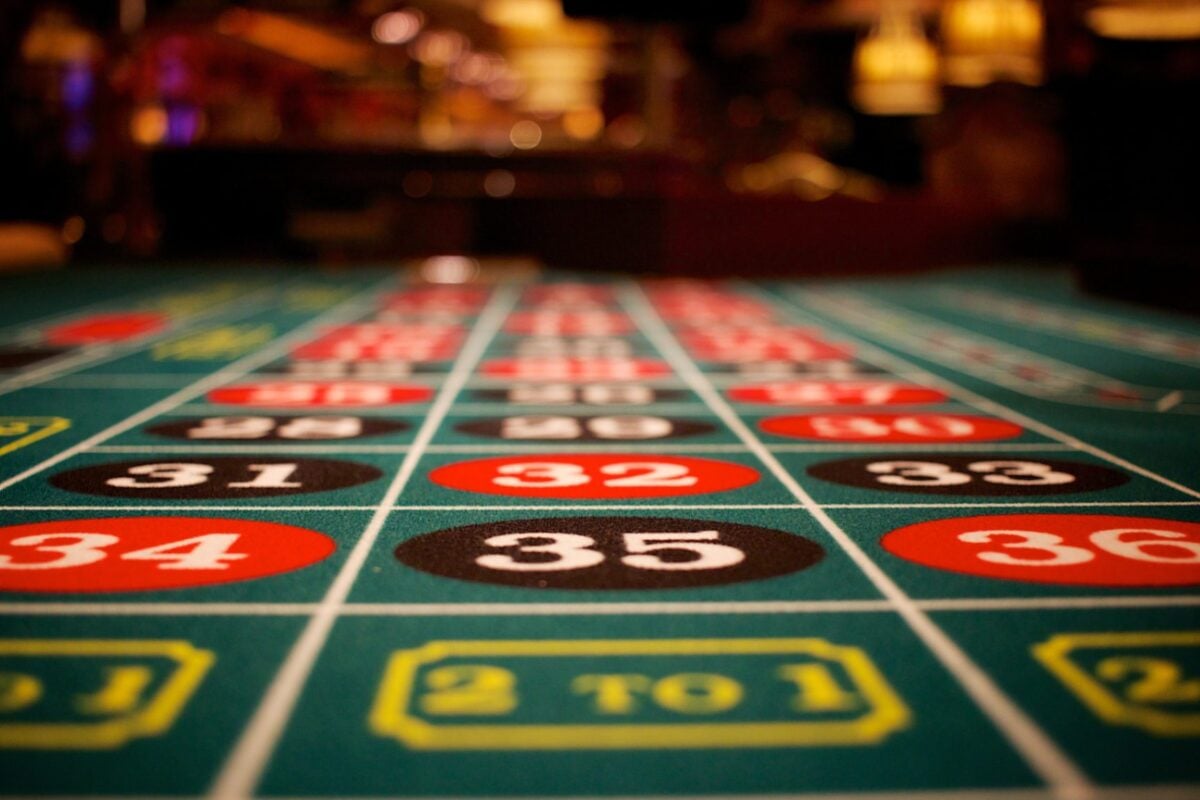Gambling is often seen as a harmless pastime, but the hidden health risks of casino gambling can be serious. What may start out as an occasional visit to a casino can quickly lead to compulsive and dangerous behavior, resulting in physical and mental health problems?
With its flashing lights and promise of easy money, it’s no wonder that millions of people around the world are drawn to casinos every year. But for some, this alluring form of entertainment comes at a high cost – one that goes far beyond their bank accounts. In this article, we explore the potential dangers associated with casino gambling, including the allure of no deposit bonus, and how best to protect yourself from harm.
1. The Effects of Casino Gambling on Mental Health
The Effects of Casino Gambling on Mental Health Casino gambling can have a considerable impact on mental health, with studies suggesting that it can lead to both positive and negative psychological effects. On the one hand, it has been shown to provide people with a sense of social connectedness, as well as providing them with a stimulating environment where they can enjoy themselves and win money.
On the other hand, however, there are potential risks related to casino gambling including anxiety disorders from heightened levels of stress when players bet more than they can afford or become overly focused on winning large sums of money. Other risks include feelings of guilt or shame after losses and increased risk-taking that could result in greater financial losses than originally intended.
Overall, while participating in casino gambling may bring some enjoyment for some individuals in moderation, it is important to be aware of the potential psychological consequences that could arise if players do not gamble responsibly.
2. The Physical Consequences of Prolonged Gambling

Prolonged gambling can have far-reaching physical consequences, some of which can be extremely serious. The most common physical effects are exhaustion and sleep deprivation, as gamblers find themselves staying up late in order to continue their gaming sessions. This can lead to lower energy levels during the day, resulting in slower reaction times and a decline in cognitive performance.
Additionally, research has shown that people who gamble for extended periods of time often develop certain unhealthy lifestyle habits such as smoking or excessive alcohol consumption. Other physical side effects include a weakened immune system due to stress and lack of proper nutrition; this increases susceptibility to illnesses from bacteria or viruses. Gambling also has an effect on blood pressure as well as circulation issues leading to headaches and dizziness caused by prolonged sitting without movement or stretching of muscles.
Furthermore, a poor diet associated with gambling may result in vitamin deficiencies over time which could put the gambler at risk for other diseases such as heart disease or diabetes if left unchecked. It is therefore important for anyone engaging in any form of gambling activity to take regular breaks and ensure they are eating healthily while maintaining good exercise habits even when not placing bets – these steps will help minimize the potential risks outlined above while still enjoying casino games responsibly.
3. Financial Implications of Problematic Gambling
The financial implications of problematic gambling can be damaging and far-reaching. Problem gamblers often find themselves in a vicious cycle, spending money they do not have in an effort to win back their losses. This can lead to massive debt, bankruptcy, and even homelessness as problem gamblers attempt to support their habit with borrowed or stolen funds. Furthermore, this situation is likely to worsen if the gambler fails to seek help or if they are unable to access appropriate treatment options due to a lack of funding.
In addition, family members may suffer financially as a result of providing financial assistance or attempting to cover up the gambler’s debts in order to avoid negative consequences such as eviction notices and repossession orders that would otherwise occur.
Finally, when it comes time for creditors and lenders who offer services such as loans or credit cards to become aware of the problem of gambler’s mounting debt and begin taking legal steps toward repayment collection efforts – these individuals may also face serious financial difficulties resulting from unpaid debts incurred by another person.
4. How Addiction Impacts Relationships and Lifestyle Choices

Gambling addiction can have a profound effect on relationships and lifestyle choices. Not only is the addicted person’s behavior changed, but their family, friends, and colleagues are also affected by the addict’s actions. Gambling becomes an obsession that takes precedence over all other considerations, leaving little or no time for those around them.
As gambling addiction progresses so too do its damaging effects on personal relationships; this often leads to strained emotions between family members, arguments, and even divorce in extreme cases. Furthermore, as people become more obsessed with gambling they tend to spend less time with loved ones leading to isolation from social circles as well as straining existing relationships. In addition to these psychological impacts of casino gambling addiction, it can also lead to serious financial problems that may affect not just the gambler but those close to them too.
This could involve maxing out credit cards or taking out loans without permission; such behaviors could further damage trust within a relationship making it hard for both parties involved in a relationship to move forward together. Overall, casino gambling when taken beyond reasonable recreational levels has far-reaching consequences that impact not just one individual’s life but many others connected directly or indirectly with that person too.
5. Strategies for Avoiding the Dangers Associated with Problem Gambling
Gambling can be a fun, recreational activity that provides an opportunity to win money or prizes. Unfortunately, however, it can also lead to problem gambling and its associated risks if not managed properly. To reduce your risk of developing a gambling problem, here are five strategies you can use:
- Set Limits: Before you start playing any type of game involving money or prizes, set limits on how much time and/or money you plan to spend. This will help ensure that your activities do not get out of control and become damaging to your finances or well-being.
- Monitor Your Play: Pay close attention to how long you’ve been playing each session and how much youre spending as this will allow you to make sure that both stay within reasonable limits. If possible find someone who is willing to help keep track of these numbers for extra accountability.
- Take Breaks: Make sure that after every few hours (at least), take a break from playing in order to give yourself some time away from the tables before starting up again later on in the day if desired. This will prevent fatigue which could lead people into making bad decisions while gambling – something we want to avoid at all costs!
- Be Honest With Yourself: At times it may be difficult to admit when things have gotten too out of hand but being honest with yourself is key when trying not to fall victim to problem gambling behaviors; so try your best never to ignore what’s going on around and acknowledge it early on before anything gets worse than expected!
- Seek Professional Help If Needed: Lastly, don’t hesitate to reach out for professional help if needed; there are many organizations available worldwide specifically dedicated to helping those dealing with problematic gaming behavior patterns – so don’t feel ashamed about asking for assistance whenever necessary!


